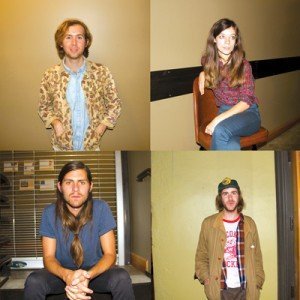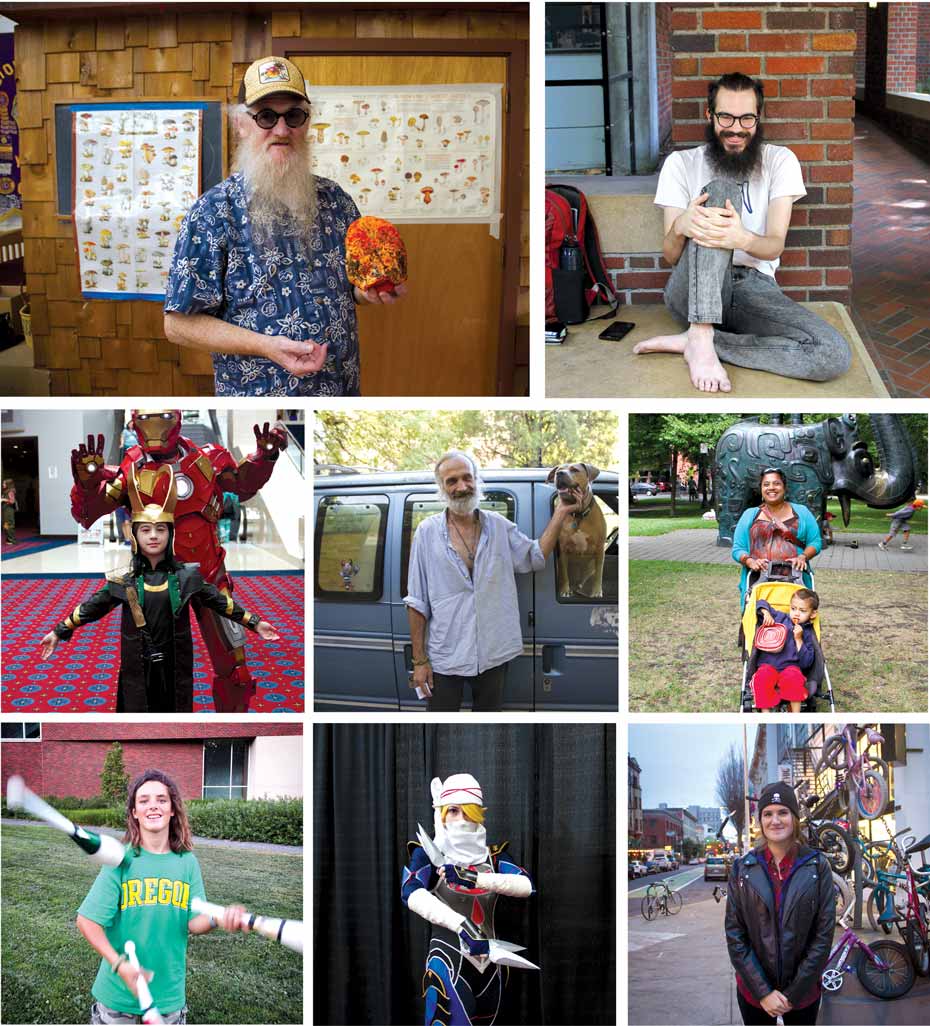Portland photographer Ariston Vallejos


In a world where it is easy to become overwhelmed with frequent tragedies or to emotionally shut off and drown in a sea of hum-drum daily routines, it can be difficult to pause and remember what is truly important. Ariston is a local multi-media artist with a background in photography, music performance and international studies, and someone who is attempting to offer that space for anyone willing to participate. His latest artistic venture is called, “The Important Project,” and his basis is not only to ask what’s important to you, but also to expose to you the diversity of what is important to many across our global community.
ELEVEN: What started you down the path to your current project?
Ariston Vallejos: The idea for The Important Project came about in 2010 when I was living in Japan for about five months working with kids of service families on a naval base in Yokosuka. The inspiration came from that experience and over the last five years, my idea has become more refined and evolved into what I am doing now.

11: Why are you asking what is important to people? Why that question?
AV: My mission statement for the project is to bring people around the world a little bit closer by helping them find the truly important things in life. The core values for my project are that everyone’s existence is important, everyone’s voice matters, and everyone is welcome to participate. With this project, I am not only trying to create a book, but build a global community and space on the internet, via social media, where people can gather and converse about their ideas and interact with each other. I ask people what’s important to them as a reminder of what’s important to us all. Basically, my main goal is to highlight the beauty of human diversity. I am not curating in any way, I am not opposing them, I am not trying to ask leading questions or anything like that. I am just trying to get a raw snap shot of them in the moment that they are in, in that day, and to hear about what’s on their mind. Asking people the question, “what’s important” has become a really streamline way to get to know someone really quickly, even as a stranger on the street.
11: Why do you think diversity is so important for people to see?
AV: I think that is the most important question about the project and I think about that a lot. Diversity is life, without the diverse biological system the planet wouldn’t function. I guess the most concrete answer is that things like life can’t happen if everything is uniform and there aren’t different species, seasons and change. Also on the other side of the spectrum, artistically, diversity is what makes things beautiful. As a consumer of art and life, things that are more diverse are more beautiful and interesting to me. Diversity is also important because if you have a whole bunch of different people operating in different ways and doing things differently there is an opportunity to learn. Another kind of priority for me with this project is to feature demographics that are traditionally underrepresented in popular media, such as people of color, LGBTQ folks, kids, elderly, and women, anyone that isn’t the majority of what is represented in news and media, because diversity is about a representation from everyone.
11: Do you ever disagree with what people have to say?
AV: Oh totally, yeah! I remember this one dude who has a bunch of different doctorates in math and physics and is a really interesting person, had a response that got really dark. I think it is really important to disagree with people. His response opened up for a really, deep, long, and interesting conversation, and it was really valuable to have that. Disagreement and dissent is not inherently bad, I think it’s a positive thing as long as you can discuss it in a positive way.
11: Why do you choose not to use any filters on your photographs?
AV: For this project, I chose to shoot raw and without doing any type of editing. Sometimes I might do a very minor white balance correction of the photos so that they look nice all next to each other but that is the most that I do. That’s been a real challenge for me because I love to do artistic post production and I love to do wacky color layers. It’s been a really big learning experience for me as a photographer and an editor because it means I have to be really aware of my surroundings and really on point with my photography to get a really nice raw image. Also it’s been an exercise in not being such a perfectionist and just kind of letting the flow take over. If I don’t have a really nice, high-def image of a person then I am learning that that’s ok, I just want to capture them and whatever the environment is.
11: Do you feel like there is a common message since you always ask the same question?
AV: That is a tough thing to answer, I am always looking for themes in things and I have divided it up into a lot of different categories, but I think if you boil down to what most of the people are saying it’s to try your best to be a kind person to others. There have been no two answers that have been really similar, which I think is another cool thing about this project. That also goes hand in hand with the diversity theme and really highlights how every single person is different. While we are all thinking about different things as being important in our lives, those things are all kind of related.
11: How many will be in your book? Do you have a set number?
AV: I don’t have a set number; it’s going to end up being what just feels right after my travels. But I think I have interviewed at least 300 people since I started actually hitting the streets and this last June was when I started photographing people.
11: Do you plan on your interviews by the day?
AV: I like to plan to go to specific events, like Comic-Con was a really fun one, where people were in really awesome costumes. I am also planning on going to different festivals around the world like Holi in India, and to visit Japan again during the summer. I want to really showcase the different extremes of these cultures and things that people do. I am really interested in the celebrations and traditions that people have worldwide. Usually what I do is set aside one day a week to focus on meeting people and getting as many interviews as I can.
11: What’s important to you?
AV: Something that I have realized with this project is that everything is important. Maybe you have to work to figure out why it is important, but everything has a story and a purpose. I think that if you examine anything at all in life you can find importance in it. Especially after asking hundreds of people what is important to them and hearing all of their wonderful answers there is no way that I can say that any one thing is important. When I print my book, in my forward I am going to focus a little more about specific important things, but I am saving that for when the book comes out. »
– Lucia Ondruskova

“The Important Project”



